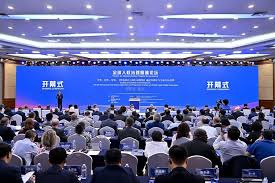
Islamabad, June 21 (INP): Forum on Global Human Rights Governance, jointly hosted by the Information Office of China’s State Council, China’s Ministry of Foreign Affairs and the China International Development Cooperation Agency, proved to be a resounding success.
Held last week, it underscores China’s commitment to fostering global dialogue on this important subject. With an impressive turnout of approximately 300 esteemed senior officials, researchers, and diplomats representing nearly 100 countries and international organizations, including the United Nations, the forum provided an exceptional platform for exchanging diverse perspectives and ideas.
The event’s theme centered on promoting mutual understanding and cooperation, allowing participants to explore innovative approaches to human rights in a truly collaborative and constructive manner, according to a report published by Gwadar Pro on Wednesday.
The two-day forum was themed “Equality, Cooperation and Development: The 30th Anniversary of the Vienna Declaration and Programme of Action and Global Human Rights Governance.”
Founded in 2008, this forum stands as a testament to China’s unwavering commitment to fostering international dialogue on human rights.
This esteemed platform has emerged as a vital hub for global exchanges, enriching the field and bolstering the healthy advancement of the international human rights movement with its invaluable insights and collective resolve.
Reflecting upon the three decades that have passed since the 1993 World Conference on Human Rights convened in Vienna, Austria, it is disheartening to acknowledge the limited and disappointing progress achieved.
The underlying causes for this unfortunate state of affairs are diverse, yet one glaring factor persists: the persistent presence of certain powers that, driven by a sense of hegemony, continue to wield influence beyond their own borders.
This lingering hegemonism acts as a formidable obstacle to the realization of universal human rights, impeding the much-needed advancements in this crucial realm. It is imperative that these forces of control are addressed and overcome to pave the way for a more just and equitable global order.
In our ever-evolving global governance system, the cherished ideal of protecting human rights has encountered profound challenges. The prevailing Western-centric narrative, often detached from the realities and imperatives of the Global South’s sustainable development, has revealed its limitations time and again.
It is untenable for any single nation or authority to unilaterally establish a universal benchmark for human rights, disregarding the rich tapestry of cultural norms and priorities that define our diverse world.
Today, we witness a disheartening state of disarray in the realm of global human rights governance, emphasizing the urgent need for a more inclusive and nuanced approach that respects the unique perspectives and aspirations of all nations and peoples.
The forum is making very sincere efforts to counter the myopic and biased narrative of Westerners about human rights and using it as a bullying tool to maneuver global politics. Forum participants unanimously commended the Chinese government’s sincere and effective diplomatic endeavors in promoting and safeguarding human rights values and concepts.
“Many countries are now optimistic. The Global Security Initiative is an action-oriented architecture. It has in part exposed the inadequacies of the current normative framework of the international human rights system, opined Crispin Kaheru, a member of Uganda Human Rights Commission while talking about impact of the GSI on human rights protection.
Similarly, Veronika S. Saraswati, convener of the China unit at the Centre for Strategic and International Studies, a Jakarta-based think tank, also eulogized Beijing’s efforts in these words: ”The Chinese government’s strenuous efforts in realizing these goals show that it embodies the true value of a government when it comes to promoting and protecting human rights. China’s success in eradicating extreme poverty in the country is its biggest contribution to global poverty alleviation and promotion of human rights.”


































































































